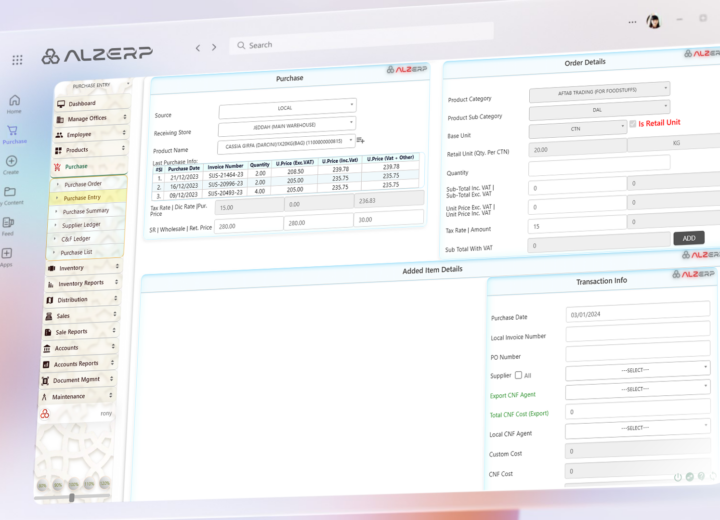تفويضات المملكة العربية السعودية الفواتير الإلكترونية (الفواتير الإلكترونية) الامتثال للشركات من خلال بوابة فاتورة. يضمن هذا النظام الالتزام التنظيمي، ومعالجة الفواتير الآمنة، والتكامل السلس مع إطار عمل هيئة الزكاة والضرائب والجمارك (ZATCA). إن بوابة محاكاة فتورا بمثابة بيئة اختبار منفصلة للشركات قبل التنفيذ على نطاق واسع.
1. متطلبات الامتثال العامة
- يجب على الشركات إنشاء الفواتير وتخزينها والإبلاغ عنها إلكترونيًا وفقًا للوائح ضريبة القيمة المضافة.
- الاستخدام حلول توليد الفواتير الإلكترونية المتوافقة (EGS).
- تأكد من التحقق من صحة الفواتير وإعداد التقارير في الوقت الفعلي من خلال نظام فاتورة.
- الحفاظ على سجلات الفواتير التفصيلية لعمليات التدقيق والفحوصات التنظيمية.
2. مراحل وأنظمة الفوترة الإلكترونية
✅ المرحلة 1 (مرحلة التوليد) - اعتبارًا من 4 ديسمبر 2021
- يجب على الشركات إنشاء الفواتير الإلكترونية (الفواتير الإلكترونية) من خلال الوسائل الرقمية.
- لا يلزم وجود تنسيق محدد للفاتورة، ولكن الامتثال لضريبة القيمة المضافة إلزامي.
- يوصى باستخدام رموز الاستجابة السريعة ولكن غير مفوض.
- لا يوجد ختم التشفير أو تسجيل الجهاز مطلوب.
✅ المرحلة 2 (مرحلة الاندماج) - اعتبارًا من 1 يناير 2023 (تُنفذ على موجات)
- تنسيق XML إلزامي للفواتير
- رموز الاستجابة السريعة والطوابع المشفرة مطلوبة.
- يجب أن تكون الحلول المتوافقة مسجّل على بوابة فاتورة FATOORA.
- يجب على الشركات الإبلاغ عن الفواتير في الوقت الفعلي عبر واجهة برمجة التطبيقات (API) إلى نظام فاتورا.
- يجب أن تكون الفواتير الضريبية مسح قبل المشاركة مع العملاء.
الملامح الرئيسية لبوابة فاتورة FATOORA
1. الوظائف الأساسية لدافعي الضرائب
- تأهيل وحدات EGS: يمكن للشركات تسجيل حلول توليد الفواتير الإلكترونية (EGS) الخاصة بهم وإنشاء معرّفات الطوابع المشفرة (CSIDs).
- تجديد طوابع التشفير (CSID): يمكن للشركات تجديد هويات CSIDs منتهية الصلاحية لأجهزة متعددة.
- إدارة الأجهزة: عرض وإدارة جميع الأجهزة المدمجة، بما في ذلك الإلغاء إذا لزم الأمر.
- إحصائيات الفواتير الإلكترونية: الوصول البيانات في الوقت الفعلي عند تقديم الفاتورة (مقبول، مقبول مع تحذيرات، مرفوض).
- الوصول إلى وثائق API: إعادة التوجيه إلى بوابة المطورين للتكامل السلس.
2. بوابة المحاكاة FATOORA (بيئة الاختبار)
- الاختبار من النهاية إلى النهاية: يسمح للشركات بـ اختبار إنشاء الفواتير وإعداد التقارير دون التأثير على المعاملات الحقيقية.
- البيئة المستقلة: يجب أن تكون الأجهزة على متن الطائرة بشكل منفصل عن بوابة فاتورا الرئيسية.
- نقاط نهاية واجهة برمجة التطبيقات المختلفة: يجب على الشركات استخدام عناوين URL مخصصة لاختبار المحاكاة.
- الإجراءات التي لا رجعة فيها: إلغاء الجهاز في بوابة المحاكاة لا يمكن التراجع عنها.
3. الوصول الآمن وبيانات الاعتماد
- أوراق اعتماد ERAD مطلوبة:
- رقم التعريف الضريبي (TIN) أو البريد الإلكتروني المسجل لدى ZATCA.
- مصادقة كلمة المرور للأمان
- بيانات الاعتماد المنفصلة لبوابة المطورين: تختلف عن بيانات اعتماد تسجيل الدخول إلى فاتورة FATOORA.
- الوصول إلى البوابة الإلكترونية عبر موقع ZATCA الإلكتروني: يمكن للمستخدمين التبديل بين بوابتي FATOORA والمحاكاة من القائمة العلوية اليمنى.
4. تتبُّع تقديم الفواتير والإبلاغ عن الأخطاء
- ملخص الفواتير الإلكترونية لمدة 12 شهرًا: يمكن للمستخدمين عرض إحصائيات الفواتير للعام الماضي.
- تقارير CSV المفصلة عن الأخطاء: يمكن للشركات تنزيل سجلات الأخطاء للفواتير المرفوضة.
- تحديثات الحالة في الوقت الفعلي: رؤية واضحة في الفواتير المقبولة أو التي تم الإبلاغ عنها أو المرفوضة.
من خلال اتباع هذه لوائح الامتثال واستخدام بوابة فاتورة FATOORA بفعالية، يمكن للشركات في المملكة العربية السعودية ضمان الفوترة الإلكترونية السلسة، والامتثال لضريبة القيمة المضافة، والتدقيق الضريبي الفعال مع الاستفادة من الأتمتة وإعداد التقارير في الوقت الفعلي.



